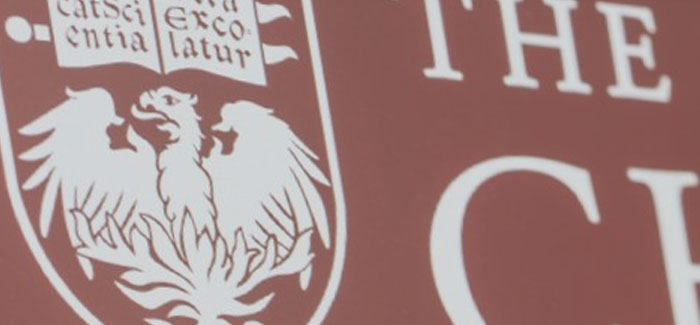Down in the District of Columbia
D.C.-based alumni provide a peek into their daily lives.
A former Law School lecturer is now U.S. president—and an unprecedented number of University alumni, faculty, staff, and trustees are working in D.C. Although the current UChicago presence is exceptional, says Dean Mark Hansen, alumni from the Social Sciences Division have long gravitated to the capital.
"The social sciences have always had an intimate relationship with government," Hansen continues. "So whether it's economists whose expertise is essential to policy making in government agencies or anthropologists whose work is vital in the preservation and understanding of the nation's cultural heritage, Washington is drawn to our alumni and our alumni are drawn to Washington. Our alumni emerge from an institutional culture that puts ideas first, and I think they bring a passion for learning to a town that is often obsessed with ideology and tactical advantage."
Dialogo recently caught up with three such alums, all of whom have enjoyed long careers inside the Beltway.
Vinod Thomas, AM'74, PhD'77 (Economics), director-general and senior vice-president, Independent Evaluation Group, The World Bank
Your job, in a sentence: To give an independent assessment of the impact that World Bank Programs have on improving people's lives in the developing world.
Realistic and rewarding: Tough as it is, I enjoy putting out an objective view of the effectiveness of the World Bank, avoiding conflicts of interest in the conclusions arrived at, and calling it as I see it.
Impressive gains: My most intense involvement in recent years was in Brazil from 2001 to 2005. I saw the last year of Fernando Henrique Cardoso's presidency and the transition and follow-through of the presidency of Luiz Inácio Lula da Silva. It was fascinating to witness the gains in basic education that were built on the efforts of the previous decade. Against many observers' fears, macroeconomic stability deepened and income distribution improved sharply. I accompanied President Lula on his first visit to India and enjoyed strong working relations with the country.
UChicago memories: Demanding as it was, I will never forget the great access we graduate students enjoyed with the professors even in their busiest days, and the down-to-earth, pragmatic feedback they were ready to give us at every turn.
Siddharth Tiwari, AM'80 (Harris School), AM'83, PhD'87 (Economics), secretary, International Monetary Fund
Your job, in a sentence: I am part of the senior management team of the institution: secretary to the resident executive board and responsible for the management of the board's work program; secretary to the International Monetary and Financial Committee, which is our 24-member ministerial body that meets twice a year; and secretary to the IMF Board of Governors representing our membership of 187 countries that meets once a year.
Worthwhile work: My favorite part of the job is to help create an environment where the international community can debate, resolve, and take action to solve global challenges.
Charting change: I have been lucky to work on some of the large transformations seen in the recent past: in Russia and later in Africa. In both these instances, the impact of our work was visible sooner rather than later.
UChicago memories: Chicago was an amazing place when I was a graduate student. It was a place where you could pose questions, voice opinions, share ideas, take risks, and challenge yourself.
Lessons learned: The University made me open to new ideas even though my daughters—both in college—would think otherwise. Chicago taught me to be rigorous. I would like to think that this combination of innovation and rigor has been immensely helpful to my work at the IMF.
Anna Greenberg, AM'93, PhD'97 (Political Science), senior vice president, Greenberg Quinlan Rosner Inc.
Your job, in a sentence: I am a political pollster, working for Democratic candidates and progressive advocacy groups, helping them get elected or implement policy change.
Intellectual rigor and noontime naps: My best Chicago memories involve my peers and the intellectual engagement and stimulation. I also miss my afternoon naps at Regenstein Library.
Family matters: Greenberg Quinlan Rosner was started by my father, and I worked for him off and on throughout college and graduate school. I came back to the firm from the Kennedy School of Government after I decided I would rather "do" than teach.
Applied analysis: I conduct research for a living, so any coursework related to research design and data analysis is a part of my daily work. More importantly, the U of C taught me how to think and write.
Words of wisdom: Make sure you get practical political experience. The life of the mind does not prepare you for the rough and tumble of political consulting.

